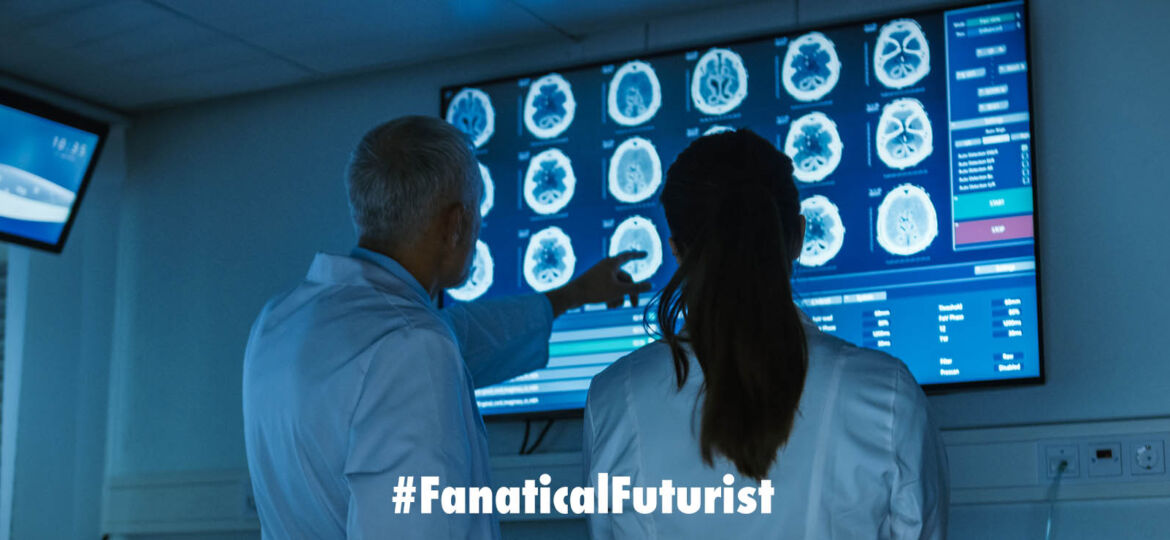
WHY THIS MATTERS IN BRIEF
AI will take jobs, but it’s also going to improve employee training dramatically to improve employees skills.
 Love the Exponential Future? Join our XPotential Community, future proof yourself with courses from XPotential University, read about exponential tech and trends, connect, watch a keynote, or browse my blog.
Love the Exponential Future? Join our XPotential Community, future proof yourself with courses from XPotential University, read about exponential tech and trends, connect, watch a keynote, or browse my blog.
When we talk about the future of work and the workplace many of them focus on the news that Artificial Intelligence (AI) will automate jobs, and very few pay attention to, or even think about, the fact that increasingly AI’s also helping augment human intelligence and even teaching people new skills and new knowledge in new ways – something that literally has the potential to take human intelligence to the next level.
Following on from the news that the AI’s that thrashed human E-Sports pro gamers are now coaching them to be better gamers here’s yet another news story in that same thread. Except this time it’s AI teaching neurosurgeons a thing or two – that is before this neurosurgical robot takes their jobs. But that’s another story.
The Future of Jobs and Skills, by Keynote Futurist Matthew Griffin
The COVID-19 pandemic has presented both challenges and opportunities for medical training so naturally remote learning technology has become increasingly important in several fields. A new study finds that in a remote environment, an AI tutoring system can outperform expert human instructors.
The Neurosurgical Simulation and Artificial Intelligence Learning Center at The Neuro (Montreal Neurological Institute-Hospital) recruited seventy medical students to perform virtual brain tumor removals on a neurosurgical simulator. Students were randomly assigned to receive instruction and feedback by either an AI tutor or a remote expert instructor, with a third control group receiving no instruction.
An AI-powered tutor called the Virtual Operative Assistant (VOA) used a machine learning algorithm to teach safe and efficient surgical technique and provided personalized feedback, while a deep learning Intelligent Continuous Expertise Monitoring System (ICEMS) and a panel of experts assessed student performance.
In the other group, remote instructors watched a live feed of the surgical simulations and provided feedback based on the student‘s performance.
The researchers found that students who received VOA instruction and feedback learned surgical skills 2.6 times faster and achieved 36 percent better performance compared to those who received instruction and feedback from remote instructors. And while researchers expected students instructed by VOA to experience greater stress and negative emotion, they found no significant difference between the two groups.
Surgical skill plays an important role in patient outcomes both during and after brain surgery. VOA may be an effective way to increase neurosurgeon performance, improving patient safety while reducing the burden on human instructors.
“Artificially intelligent tutors like the VOA may become a valuable tool in the training of the next generation of neurosurgeons,” says Dr. Rolando Del Maestro, the study’s senior author. “The VOA significantly improved expertise while fostering an excellent learning environment. Ongoing studies are assessing how in-person instructors and AI-powered intelligent tutors can most effectively be used together to improve the mastery of neurosurgical skills.”
“Intelligent tutoring systems can use a variety of simulation platforms to provide almost unlimited chances for repetitive practice without the constraints imposed by the availability of supervision,” says Ali Fazlollahi, the study’s first author. “With continued research, increased development, and dissemination of intelligent tutoring systems, we can be better prepared for ever-evolving future challenges.”
The study was published in the Journal of the American Medical Association (JAMA Network Open) on Feb. 22, 2022.
















